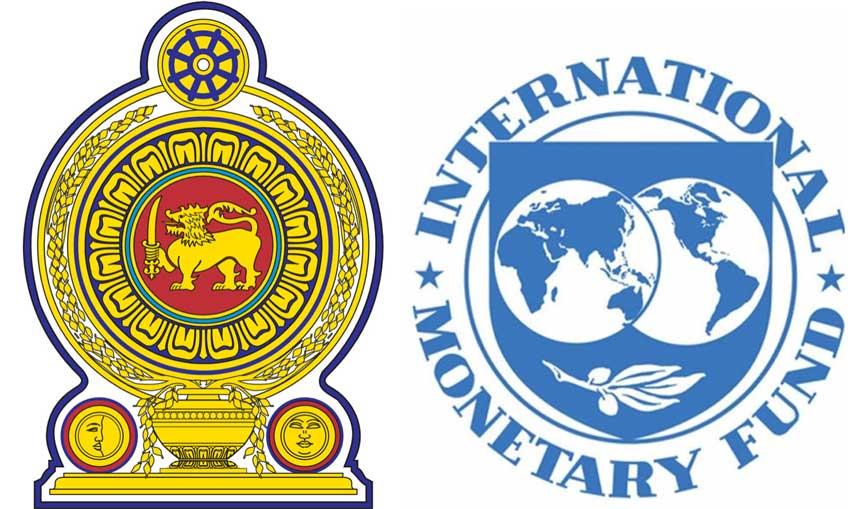Reply To:
Name - Reply Comment

IMF was poised to approve a US$2.9 billion bailout to Sri Lanka on Monday, where the author says Sri Lanka's long march for economic recovery could only now begin
President Ranil Wickremesinghe would now take a victory lap, though this is a pyrrhic victory of a country that has self-infected economic ruin. He still deserves some credit for stabilizing the economy that was on a free fall, a year ago
The government is also planning to divest the ownership of a number of SOEs, including Sri Lankan Airlines, Sri Lanka Telecom, LITRO Gas, Sri Lankan Catering, Airport Ground handling, Hilton Hotel, etc, through which it is expected to raise US$ 4.5 billion
Securing the bailout does not negate the necessity of much-needed and long-neglected economic reforms. But the danger is that the government’s willingness to reform could dampen over time
 Yesterday was a momentous day! With the International Monetary Fund’s executive board poised to approve the US$ 2.9 billion extended funding facility last night, Sri Lanka’s long march for economic recovery could only now begin.
Yesterday was a momentous day! With the International Monetary Fund’s executive board poised to approve the US$ 2.9 billion extended funding facility last night, Sri Lanka’s long march for economic recovery could only now begin.
But, also expect the usual culprits, who wish the country’s doom so they could achieve their petty political ends, to double down on demonizing the bailout or pooh-pooh it, or for the seasoned conspiracy theorists to call it an international conspiracy.
They are a motley group of people, as wide-ranging as the disgruntled university dons, the partisan political activists and government trade union bosses, all of whom seem to have no qualms about taking the government hostage at the country’s weakest moment in recent memory. They would probably pose the most vicious challenge to the economic reform agenda leading to long-term growth.
Unplugging the funding sources
It has been a long wait for the IMF lifeline. The median waiting period for an IMF bailout is 55 days. However, Sri Lanka waited for over six and a half months. President Ranil Wickremesinghe would now take a victory lap, though this is a pyrrhic victory of a country that has self-infected economic ruin. He still deserves some credit for stabilizing the economy that was on a free fall, a year ago and showing political will to fulfil 15-point pre-conditions of the IMF deal, despite knowing that they were unpopular and it would mean him effectively playing into the hands of his political opponents.
The first tranche of the US$ 390 million bailout package would be available within the next few days. Most importantly, the IMF deal would unplug the other multilateral and bilateral sources. This includes US$4.5 billion from the Asian Development Bank (ADB) and the World Bank (WB) through policy-based loans. Also, suspended development projects such as the Japan International Development Cooperation (JICA) funded construction of a new terminal of the Katunayake International Airport and the Colombo monorail project, which was abandoned by the Gotabaya Rajapaksa government, would likely to resume.
The government is also planning to divest the ownership of a number of SOEs, including Sri Lankan Airlines, Sri Lanka Telecom, LITRO Gas, Sri Lankan Catering, Airport Ground handling, Hilton Hotel, etc, through which it is expected to raise US$ 4.5 billion.
The restructuring of the CEB, which has outstanding debt of Rs. 563 billion to the state banks as of August last year, is also on the cards -- and is already opposed by the trade unions.
Opposition’s moment of truth
The president is expected to table the government’s agreement with the IMF in Parliament. This would effectively place the ball in the opposition court, which could demand a vote on the IMF agreement. But, which way to vote would be is tricky. Opposing the bailout would expose political opportunism, which an industrious government should be able to call out. Supporting the agreement would still be a loss of face for many opposition politicians who seemed to have defined their role as opposing the government for the sake of it.
While that was not new and, by and large, the norm of Sri Lankan politics, which in part explain the state dysfunction born out of political opportunism, these are still the exception times with much at stake for the nation. Hence it calls for a degree of responsible and mature politics. The main opposition Samagi Bala Vegaya (SJB) should rise to the occasion. The Janatha Vimukthi Peramuna (JVP) though, has tasted blood and seemed to think the economic misery of the people would help it win a future election, a long shot indeed, may fall short of these niceties.
The IMF deal should kickstart the painful process of economic recovery. The government should also proceed with the much-needed economic liberalization and reforms in the state sector and SOEs. Securing the bailout does not negate the necessity of much-needed and long-neglected economic reforms. But the danger is that the government’s willingness to reform could dampen over time. The opposition to the reform agenda would also grow in intensity as the economic hardships gradually ease. This could lead to the demands by the trade unionists and other interested groups to maintain the status quo of the state institutions, which are overstaffed, and by word for inefficiency.
The government should use this window of opportunity to forge ahead with the rest of the reform agenda. Because the longer it waits, too little it will achieve.